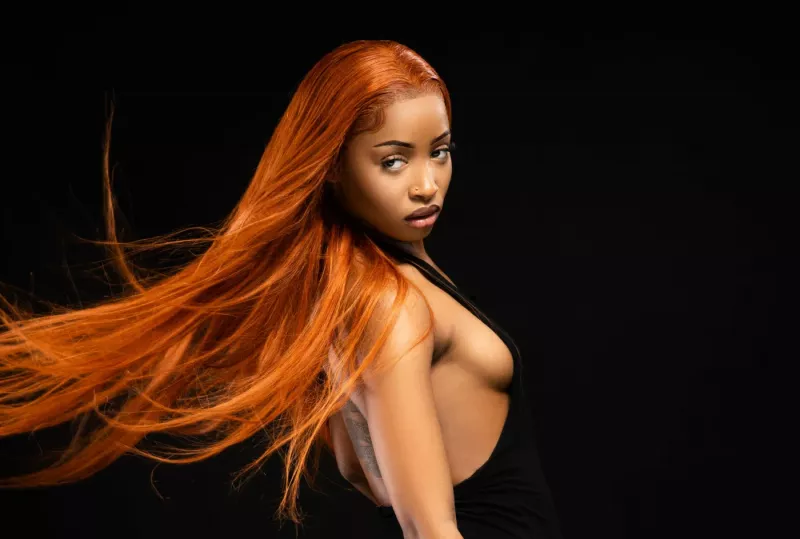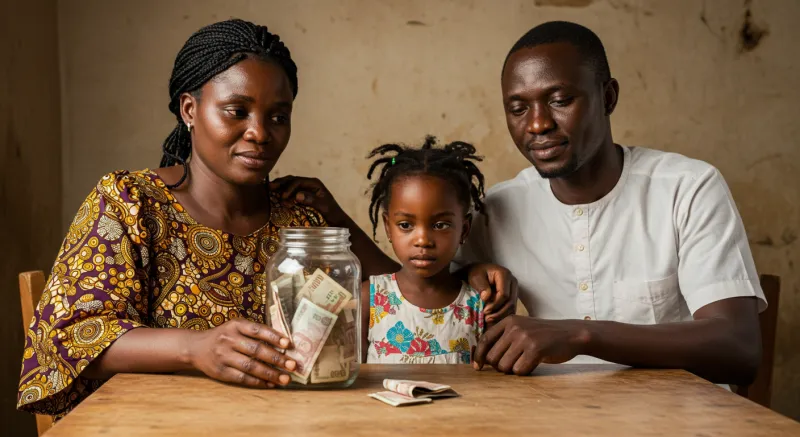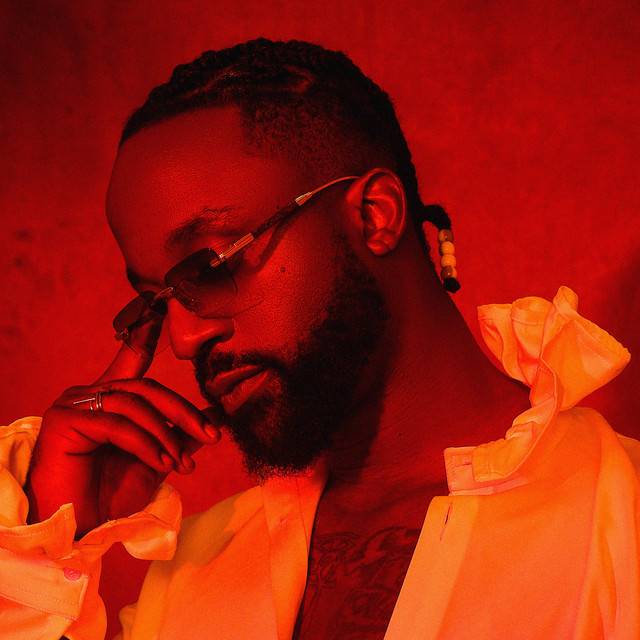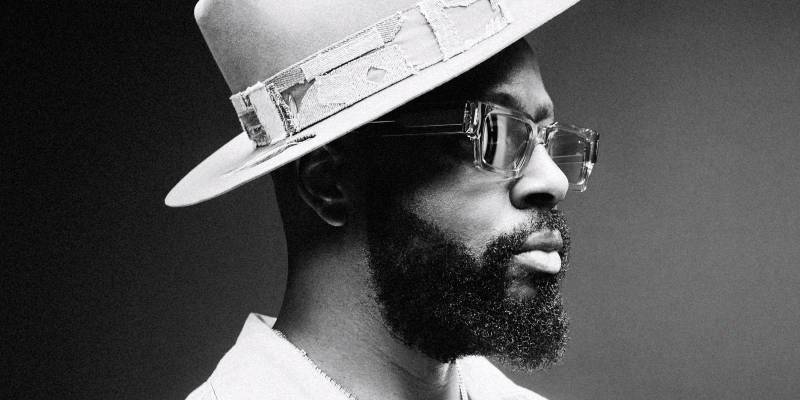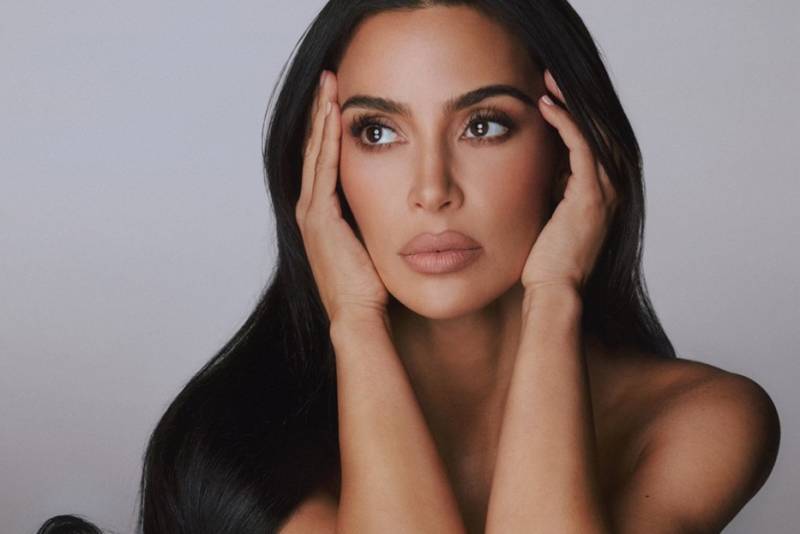Whether it’s house or techno, Black electronic music has been at the forefront of popular culture for decades, often with the Black musicians and communities behind it rarely afforded the credit for actually birthing it. The tides, however, are slowly changing, thanks in part to social media making it easier to credit creators and discover new sounds.
One such sound that began to gain international traction around 2019 is Amapiano—or, as it’s also affectionately referred to by its people in South Africa, ‘piano (which also reflects the literal Zulu translation). Amapiano—a blend of percussive loop samples and melodic, energetic vocals, deep house and jazz—is arguably the biggest sound coming out of the continent right now, with the likes of Burna Boy, Wizkid and Davido all collaborating with its artists and even taking them on global tours. This increased awareness has helped shine a light on the rich and ever-evolving musical legacy of South Africa, a nation where music has been integral not only in soundtracking major historical events, but also in forming Black national identity and culture post-Apartheid.
Someone who has been instrumental to the genre’s growth for the last couple of years is 22-year-old Lungelihle Zwane, more commonly known as the DJ/producer Uncle Waffles. Since shooting to international stardom following a viral clip late last year, Zwane has since performed at a string of sold-out shows—at home and, more recently, here in the UK—and is here to prove that she is more than just an internet sensation. With a laser focus on building her brand, and with all eyes currently on Amapiano, the woman who describes herself as ‘awkward’ is intent on doing things her own way.
We caught up with Uncle Waffles to discuss internet trolls, that “surreal” Drake follow on Instagram, the future of Amapiano, and more
Congratulations on a sold-out UK and Ireland tour with Piano People! What was it like going on the first Amapiano all-star tour this country has ever seen, for a sound that is relatively new to this market?
Uncle Waffles: Thank you! I’m feeling so blessed, but also tired. This was my first ever time in the UK, let alone for a booking. The headline show at Ministry Of Sound sold out two weeks before the event, so it was such a pleasant surprise to see how much love Amapiano is getting and how much of an appetite and appreciation there is in every city we’ve been to. Seeing people singing along is such a surreal feeling, especially when in some cases they don’t even know what it means; especially when DJs directly from South Africa are more likely to play the specialist stuff that is less known as opposed to the commercial ones that are more widely available. I think, as the sound grows around the world, producers and DJs from around the world will bring in their influences and tastes and create Amapiano with their own flavour.
You shot to fame when a clip of you DJing at a gig in Soweto, South Africa, went viral last year—which, in turn, has triggered a set of events that have led to international recognition, as well as a follow from Drake. How did it lead up to that?
Nothing was planned, but it all happened at the right time. I’m originally from Swaziland—a small country neighbouring South Africa—and there isn’t much of a creative scene there, maybe two or three gigs a year at best, so I had to work in South Africa to develop my career. The people who have now become part of my team were hosting a show and invited me to come over and DJ; they had originally given me a slot of 6.30pm, which is a horrible time. I had another show that day, too, but after a flurry of cancellations, I ended up covering somebody. I was terrified, because not only was it my first big event in South Africa, it was sold-out too.
At what point did you realise you’d gone viral off a thirty-minute set?
My management had recorded the entire set and I posted one of the clips randomly, not thinking anything of it on the following Saturday afternoon—thinking it might do 50,000 views at most, if that. I checked my phone a couple of hours later and saw it was in the hundreds of thousands, but this was all online and I was still going about my daily business so it didn’t really sink in. It was when I woke up the next day to see that Drake had followed me, that I thought he had done it by accident so I just didn’t tell anybody for a couple of hours in case he unfollowed [laughs]. Everything felt surreal until I started to see tangible things, like bookings and enquiries
This seems like it happened quite early on in your career, but how did you actually get into DJing?
So, back in Swaziland, I used to work at a TV station hosting a show on Eswatini TV. I took advantage of the equipment there to familiarise myself with the technical side, as well as practising in my own time. When I initially started DJing, I didn’t do so with the aim of playing Amapiano—I wanted to play Afro-house, which is a slower mix of kwaito, deep house and tribal; think Black Coffee. I used to watch a lot of South African DJ DBN Gogo’s mixes on YouTube; she wasn’t using headphones and I couldn’t understand how she was so adept at being aware when she wasn’t even using headphones.
There’s a real shine on Amapiano at the moment in Africa, as well as lots of cross-continental collaboration. You hosted a brunch in Accra with Ghanaian artist Stonebwoy a couple of months back and played with Davido on some of his UK dates…
‘Piano is played everywhere now! Ghana, specifically, has a huge audience for ‘piano, even though they don’t know what it means. But there is definitely a spirit of collaboration and mutual appreciation, which is nice to see. Performing in Manchester and Birmingham on a line-up with Focalistic and Maphorisa and Davido was lots of fun; the crowd had so much energy and they were there for a good time. For Davido to say he’s a fan was, again, one of those surreal moments of shock.
As the scene is still in its infancy, would you say there is a close-knit community of Amapiano DJs and performers?
I think ‘piano is a sound with no gatekeeping—it’s rooted in a genuine love and appreciation of music that invites everybody in. Amapiano is uniquely from South African youth culture that is rooted in collectivism, so everybody is welcome as long as they bring a good vibe. There’s a cultural and historical attachment to ‘piano due to it being purely African—it’s one of the first sounds native to South Africa. A lot of the artists that are doing well and built international recognition are also taking in new artists under their wing, like DBN Gogo collaborating with TnK Misiq—a duo still in high school who have managed to work with such an established artist so early on in their career. We’ve realised the power in working together and lifting each other up, which has allowed the sound to develop and flourish.
What can be done to find the balance between championing Amapiano and also protecting it from appropriation and negative commercialisation that might alter it or water it down?
Although there isn’t gatekeeping, a lot of people are protective of this sound and there has been an argument that when non-South African musicians want to make Amapiano, they should collaborate with South African artists to maintain the essence of the music and prevent any diluting or watering down of a sound that many hold close to their hearts. The best way is to work with the artists who have built this sound from the ground-up, to really understand how important it is and also the history and context of the sound. I feel like the U.S. is the one place where Amapiano hasn’t really broken through yet, so I think in the next few years we’ll definitely see a festival for it where the whole scene comes together for an all-star event.
How have you maintained momentum since going viral, proving to people that you’re more than just an internet sensation?
The nature of my viral clips and how they involve me dancing as well as DJing has led some to actually say to my face, “You’re nothing special! It’s because you know how to perform well that you’ve made it this far.” Where people might claim I don’t deserve the success, the hours and effort that I put in speak for themselves and so it doesn’t really affect me.
Considering how much of a significant part of your journey social media has played, how do you handle it when you receive negative attention?
I have a team that handles my social media. It’s a 50/50 arrangement that allows me to stay in touch and see what’s going on, but also not get consumed by it. So, for example, if something negative is going on, I’ll be aware but there will be no need for me to really get into it. When it comes to social media, I think it’s hard to remember that a lot of people are projecting and so when they’re being negative by doing things such as claiming that you’re undeserving of your success or not good enough—it’s a reflection of them rather than you. I’ve learnt to trust myself and the hard work I put in, and remember that I’m not where I am by mistake. Most importantly, online talk is just that: online. So they can’t stop the real-life success that’s a result of real-life hard work.
